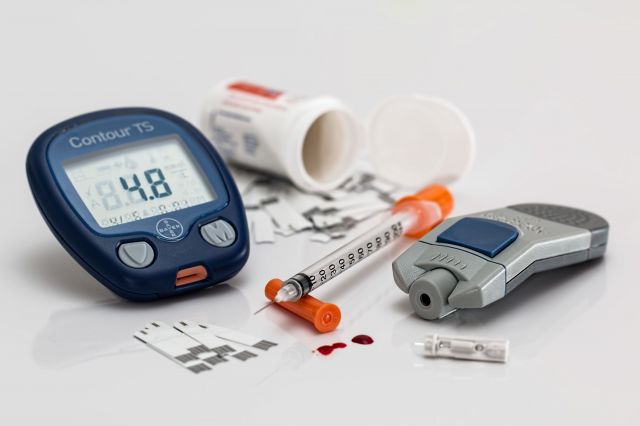Natural remedies for insulin resistance are a vital topic these days for prediabetics and diabetics.
The pancreas releases the hormone insulin in reaction to elevated blood sugar levels. Insulin's function is to allow glucose to enter your muscle, fat, and liver tissue so that it can be stored or used as an energy source.
Insulin is released after a meal as blood sugar rises, allowing glucose to leave the circulation and bringing blood sugar levels back to normal.
"Insulin sensitivity" describes the body tissue's sensitivity to insulin. Low insulin sensitivity is associated with insulin resistance and an increased risk of type 2 diabetes.
Insulin resistance results from poor insulin sensitivity in your cells, which impairs the absorption of glucose by your tissues.
Your pancreas produces more insulin in response, allowing your blood glucose levels to remain within normal bounds.
While this may be beneficial in the short run, over time the pancreas can not meet the demands, which can result in type 2 diabetes and prediabetes, and here comes the role of natural remedies for insulin resistance.

Causes of insulin resistance
Insulin resistance does not appear to have a single cause; rather, a variety of lifestyles, environmental, and genetic factors appear to be involved. Numerous of these also play a part in the metabolic syndrome.
High blood sugar, low HDL (good) cholesterol, high triglyceride levels, elevated waist circumference, and elevated blood pressure are the hallmarks of metabolic syndrome.
When combined, these variables raise an individual's risk of several diseases, such as diabetes, stroke, and cardiovascular disorders. So natural remedies for insulin resistance are very important to avoid that.
Overweight
Insulin resistance is closely linked to weight gain. Not only is a higher weight a risk factor for developing insulin resistance, but weight increase can also result from insulin resistance.
This is because more glucose is stored as fat. After all, the cells are unable to react to the rise in blood sugar levels. Insulin resistance is most commonly linked to visceral fat which is fat that is localized in the midsection.
Insulin resistance is greatly linked to a waist circumference of more than 40 inches for men and 36 inches for women. More glucose will be stored as fat if cells are unable to react to the rise in blood sugar levels.
So, in this case, natural remedies for insulin resistance are very important.
Lack of exercise
Insulin resistance is also linked to reduced physical activity and a sedentary lifestyle.
Frequent exercise has been demonstrated to lower inflammation and raise insulin sensitivity, which both help to avoid diabetes and insulin resistance.
Stress
Insulin resistance and metabolic syndrome have also been linked to both acute and chronic stress.
This is because stress causes cortisol levels to rise. Insulin and blood glucose levels rise in response to cortisol, which raises the risk of developing insulin resistance.
Genetic Elements
Your risk may also be raised by genetic factors, such as insulin resistance or type 2 diabetes family history.
Other reasons
Numerous other conditions are linked to insulin resistance, including:
- High blood pressure
- Gestational diabetes
- Polycystic Ovarian Syndrome
- Fatty liver disease
- Cushing’s syndrome
Symptoms of insulin resistance
Insulin resistance symptoms can resemble those of diabetes and prediabetes, so natural remedies for insulin resistance are important to use early to avoid these and their consequences. These include:
- Increased thirst or hunger even after a meal
- Fatigue
- Increased urination
- Frequent infection
- Tingling in the hands or feet

Laboratory investigation
These investigations are important to start treatment with natural remedies for insulin resistance.
Hemoglobin A1c (HbA1c)
It is a blood sugar indicator that displays your average values over the previous three months. It's an excellent method of evaluating your general glucose management.
Fasting Plasma Glucose (FPG)
It is used to monitor glucose levels following a 12-hour fast and is typically taken first thing in the morning. A high blood sugar level after fasting for 12 hours indicates that your body is not able to properly control blood sugar levels.
The Oral Glucose Tolerance Test (OGTT)
It is also done after a 12-hour fast. Following the fast, you consume liquid glucose. The next step is to measure your blood glucose levels at various intervals to see how your body is utilizing glucose.
Triglycerides
A blood test for triglycerides determines how much fat is in your blood. High triglyceride levels are linked to metabolic syndrome and insulin resistance.
Cholesterol
Insulin resistance and metabolic dysfunction are linked to elevated cholesterol, particularly high LDL cholesterol.

Natural remedies for insulin resistance
Sleep more
Numerous studies show a connection between decreased insulin sensitivity and insufficient sleep.
Exercise more
It is one of the natural remedies for insulin resistance. Exercise and other regular physical activity facilitate the transfer of sugar into the muscles for storage.
Performing a 30-minute workout three to five days a week can facilitate a prompt improvement in insulin sensitivity. Following at least eight weeks of activity, this may become more permanent.
Reduce stress
Stress triggers the body's "fight-or-flight" response, which in turn causes the release of stress hormones that convert glycogen into glucose.
Constant stress raises your stress hormone levels, which in turn promotes the breakdown of nutrients and raises blood sugar. So, it is one of the natural remedies for insulin resistance.
Reduce weight
Losing weight can help you reduce belly fat, improve your sensitivity to insulin in the muscles and liver, and lower your risk of developing type 2 diabetes.
Diet
- More soluble fibers
Increased insulin sensitivity has been associated with the good bacteria in your gut, which soluble fiber helps nourish. Therefore, it is considered a simple method of natural remedies for insulin resistance.
- More colorful fruits and vegetables
This is due to the high antioxidant content of colored fruits and vegetables. Free radicals are molecules that antioxidants attach to and destroy to prevent damaging inflammation throughout the body.
- More herbs and spices
Studies have revealed that at least 900 substances, found in a range of spices and herbs like fenugreek, cumin, garlic, and rosemary, may help lower insulin resistance.
- More green tea
Green tea consumption has been linked to lower blood sugar levels and increased insulin sensitivity, according to several research.
Green tea's potent antioxidant epigallocatechin gallate (EGCG), which improves insulin sensitivity, maybe the cause of these advantageous benefits.
- Reduce Sugar
It is one of the most important natural remedies for insulin resistance. The two main types of added sugars that are included in highly processed foods are table sugar (sucrose) and high fructose corn syrup.
Fructose makes up about 50% of both. Increased fructose intake has been linked to an increase in insulin resistance in diabetics, according to numerous research.
- Avoid trans fats
Trans fats, in contrast to other fats, raise the risk of numerous diseases and offer no health advantages. There is conflicting data about the impact of excessive trans fat consumption.
So avoiding it is one of the natural remedies for insulin resistance, While some research on humans has discovered danger from it, others have not.
Conclusion
It's crucial to understand that you have a variety of natural remedies for insulin resistance.
To improve your insulin sensitivity and reduce your risk of disease, consider trying some of the tips in this article. However, before making any changes, including adding supplements to your treatment plan, see a healthcare provider.
Read more about:


You must be logged in to post a comment.